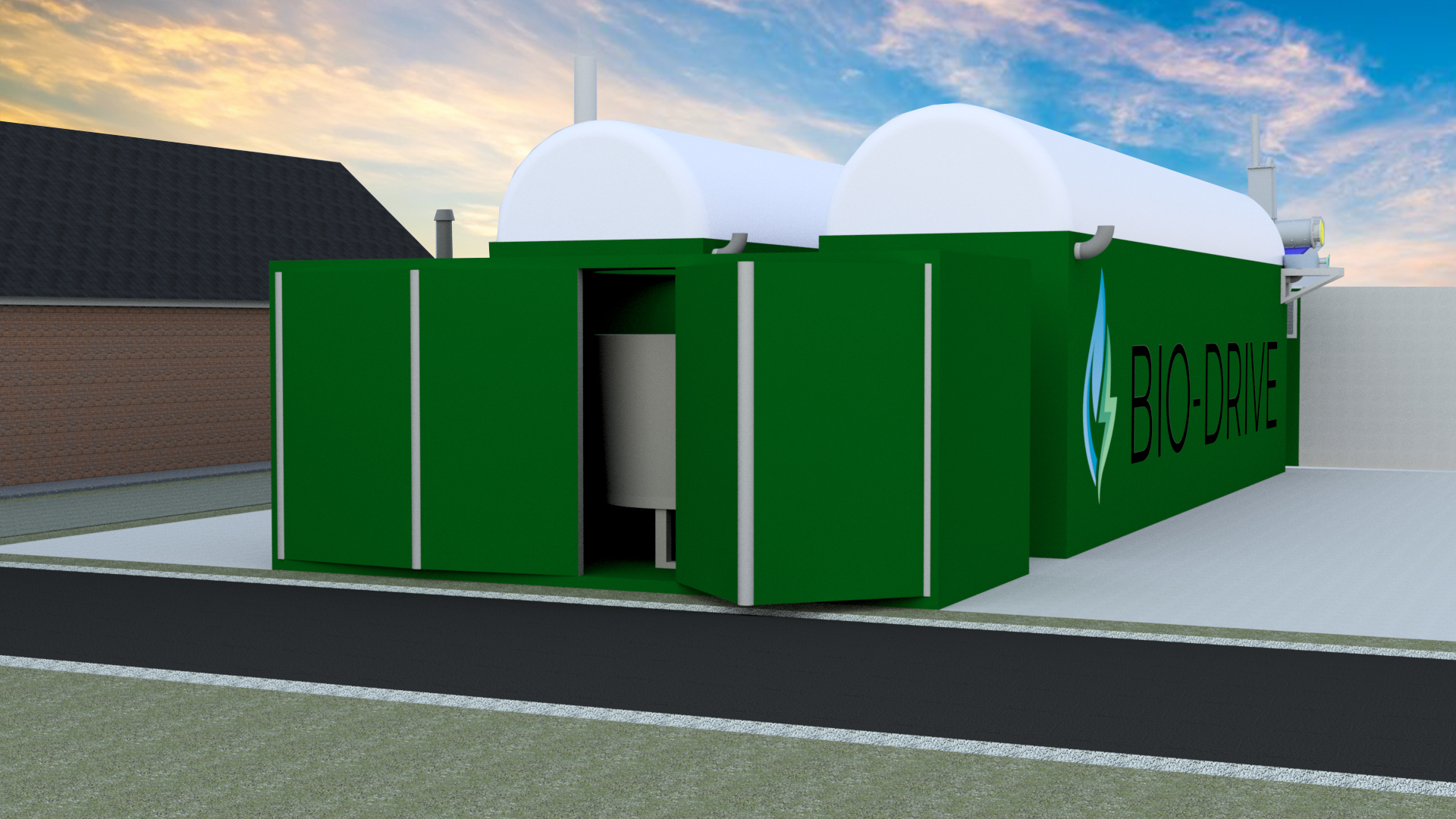
Source – Author Own
The agricultural sector here in the UK is under increasing pressure to reduce its environmental impact whilst also maintaining financial viability.
With rising energy costs and stringent environmental regulations & restrictions, UK farmers are seeking innovative solutions to these problems; solutions such as Modular Renewable Systems or MRS.
“Energy costs are going through the roof and they’re never going to come down again, which is a real worry. That’s why I think small-scale AD is such a fantastic opportunity.“
Graham Adams, UK Farmer
MRS, identified by the Anaerobic Digestion Biogas Association (ADBA) as small on farm anaerobic digestion (SOFAD), offer a sustainable pathway for UK farms to generate renewable energy, reduce greenhouse gas (GHG) emissions, and improve waste and nutrient management.
MRSs are becoming increasingly attractive to farmers, particularly in the current economic climate, being a “plug & play” system, they can be deployed quickly, to power the farm from its waste in short order, helping right away to reduce energy bills and the need for expensive carbon removal technologies.
The last 12-18 months has seen a significant shift in the perceived affordability and viability of SOFAD. As such, Bio-Drive is keen to return to our very roots of supporting Farmers, and ensure they have access to affordable, realistic alternatives to big AD.
Figure 2 – Biogas Process Diagram
Source – O’Connor, S., et al. 2021
As MRS are bespoke, decentralised, small-scale AD, and they are considered to be more flexible and cost-effective than large-scale AD plants, offering a wealth of environmental benefits, including:
“AD is much more a kind of farming activity than a non-farming activity. You’re not just dealing with waste; you’re creating a useful resource from something that would otherwise be a problem.“
Jonathan Scurlock,
NFU Chief Advisor, Renewable Energy & Climate Change
Figure 3 – UK Agri-GHG Emissions 2021
Source – DESNZ GOV.UK, 2023
Alongside these are some important economic benefits, such as:
“The most successful MSSAD projects utilise a free supply of feedstock, slurry predominantly. When you eliminate high feedstock costs and optimise nutrient recovery, the economics become far more attractive compared to large-scale AD, especially for smaller farms looking to become energy independent.“
Lucy Hopwood,
NNFCC Business Development Director & Principal Bioenergy Consultant
With this are also some barriers to adoption that need to be resolved; limited access to funding, a lack of clear policies around MRS and technical challenges.
Following an extensive study comparing existing static small-scale anaerobic digestion (AD) systems with modular renewable systems (MRS) on UK farms, we assessed their environmental impact, economic feasibility, and adoption potential. This included a case study, financial modeling, interviews with industry specialists and UK farmers, and policy analysis from ADBA, DEFRA, DESNZ, Ofgem, and the EU Commission. Our findings indicate that MRS offers a superior alternative due to its enhanced flexibility, cost-effectiveness, and scalability.

Figure 4 – Economic results of existing Irish SOFAD systems over a 20-year lifespan
Source – O’Connor, 2020
Please note Bio-Drive MRS systems offer lower capital costs over static systems, allowing much improved returns on investment compared with the above study.
“Farmers often struggle to access financing for these systems because the government hasn’t yet classified them separately from traditional AD units.“
Grace M. O’Dwyer, Deputy Head of Agriculture, HSBC

Figure 5 – Barriers to Existing SOFAD
Source – O’Connor, S., et al. 2021
HA Farm in Ross on Wye successfully operates a static small AD system, which provided extensive data for our study. The technology has proved significant financial and environmental benefits, such as – greenhouse gas emissions being reduced by over 80%. However, our findings suggest that an MRS system would provide even greater advantages, including:
By learning from the successes and limitations of static AD systems, farms like Hope Ash can transition to MRS for even greater efficiency, cost savings, and sustainability.
Modular Renewable Systems (MRS) offer all the environmental benefits of traditional AD while improving economic feasibility, flexibility, and efficiency. However, widespread adoption depends on:
Despite its existing feasibility, if the UK is to unlock the full potential of MRS, government policies must evolve to support smaller, modular systems as an integral part of the UK’s sustainable farming future.
“Farmers aren’t great at working together, but this is a real opportunity for collaboration. If we can deploy modular AD projects in a standardised way, it could be a game changer.“
Lucy Hopwood,
NNFCC Business Development Director & Principal Bioenergy Consultant
In short, MRS can make a significant and positive impact on UK farms; reducing greenhouse emissions, improving soil health, providing a cost saving on energy, plus an additional revenue stream – selling excess energy into the grid or for carbon credits.
Where originally large scale AD was more viable, the current market and social conditions across the globe have enhanced the viability of MRS for UK farmers. With a natural rate of adoption soon to follow. However, to drive widespread adoption, government funding, low-interest grants, and clear policy support must be established, ensuring that farmers can confidently integrate this technology into their operations.
MRS could change the economic landscape for UK farmers, as well as positively contribute to Net Zero and the UK’s search for energy independence. We simply need funding & policies to catch up.
Want to know more about MRS? Contact us today.
Figure 6 – Bio-Drive MRS Suggested Setup
Source – Author Own